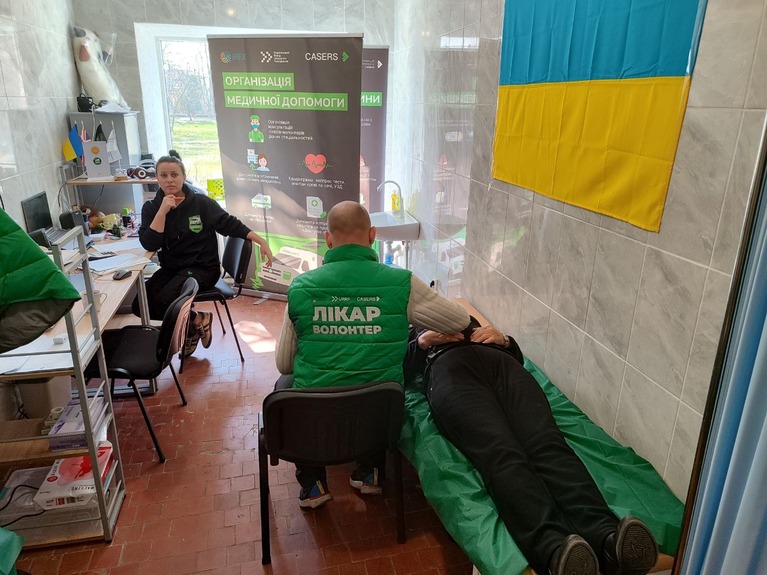Healing for Ukraine’s frontline villages: impact of mobile medical centers

Tetiana Nesterenko, a dedicated medical coordinator at NGO Casers, faces a daily mission to bring essential healthcare services to frontline settlements in Ukraine. With support from the U.S. Department of State, IREX's Ukrainian Rapid Response Fund (URRF) and NGO Casers launched a mobile medical center in November 2023. In just six months, Nesterenko and her team, who run the mobile medical center, visited 31 villages, conducted over 3,500 consultations, and served more than 2,500 unique patients in the Kherson and Mykolaiv regions in southern Ukraine.
These efforts have had a significant impact, allowing residents to receive early diagnosis of illnesses and treatment recommendations for home care and to obtain referrals to medical centers for further treatment.
Providing healthcare amidst conflict
Kherson region, significantly affected by the full-scale invasion, suffers from constant shelling and widespread destruction. Part of the region is still occupied, and another part was liberated in September 2022. Most roads are destroyed, many areas are mined, and hospitals have been bombed. There is no public transport, and volunteers organize occasional minibuses to transport 10-15 people from the villages to the nearest towns to take care of their needs.
Accessing medical services in such circumstances is almost impossible. "There are few doctors—not everyone wants to stay here and work under rocket fire. If there was safety, maybe people would return," explains Nesterenko, who was living in Poland when the full-scale invasion began but, due to family circumstances, returned to Kherson after the region's de-occupation. Initially, Nesterenko wanted to return to Poland, but decided to stay. "Everyone [in the community] already knows me; they started reaching out to me directly for help. This is my profession, and I have the ability to assist. If we don't help—then who will?"
Medical outreach to remote villages
The mobile teams go out every week, with each trip lasting four days. The team composition varies based on the patients' needs, which Nesterenko assesses beforehand to assemble a group of specialists accordingly. The most requested specialists are ophthalmologists, endocrinologists, and ultrasound technicians. Due to the constant stress residents experience, there is also a high demand for a psychiatrist, who often continues to stay in contact with patients after the trips.
The mobile teams have addressed a range of cases, including pregnancy ultrasounds, cancer diagnoses, tuberculosis, cataracts, shrapnel injuries, and transporting bedridden patients to medical facilities.
One memorable encounter Nesterenko had was with an elderly man in a wheelchair from a village. Despite his difficulty speaking, his heartfelt gratitude was evident when he simply took Nesterenko's hand and smiled. Moments like these highlight the profound impact of Nesterenko and her team’s work and the genuine connections formed with the community.
Like this man, the residents of these frontline settlements receive much needed medical care through Nesterenko, her team, and IREX's URRF program, which bring hope and healing to a community in desperate need.